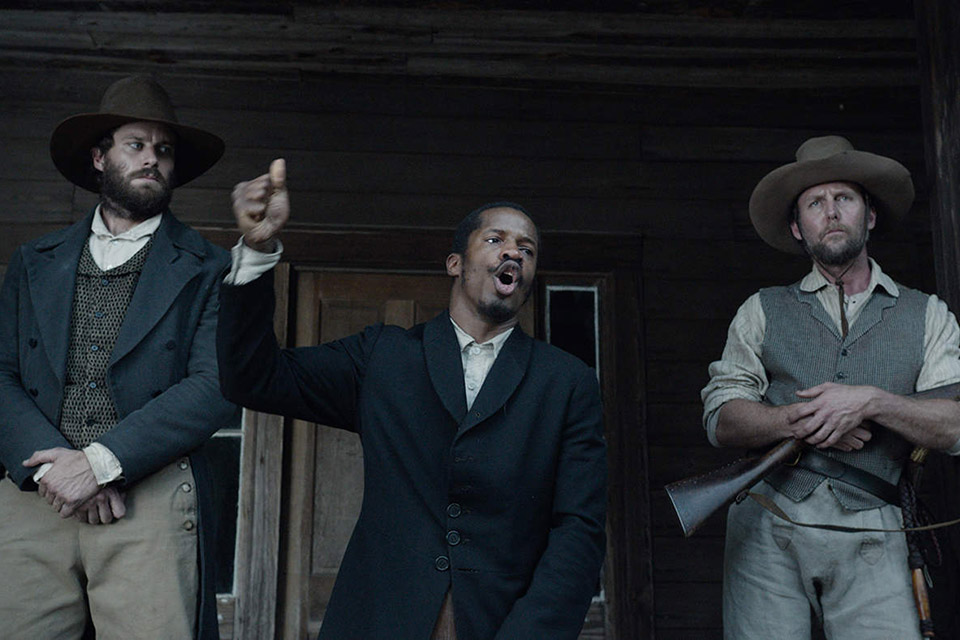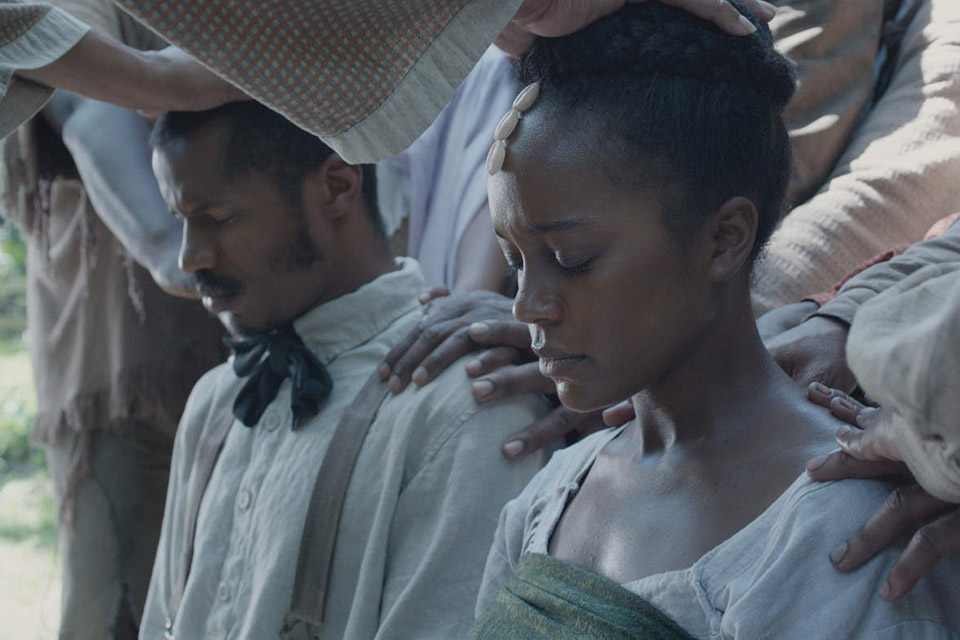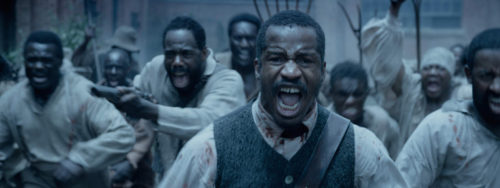One of the best and worst things about The Birth of a Nation may be that it’s a highly effective film for the message it wants to tell. The irony of that statement isn’t misplaced, particularly when mirrored against D.W. Griffith’s 1915 silent epic drama, which it intended to mock through title. That controversial film suffered from a familiar level of praise doused in criticism for its intentioned propaganda that elevated the Ku Klux Klan. The juxtaposition stands with the 2016 film being commended early this year for its hardened and unforgiving portrayal of a historic rebellion, and the other idolized decades earlier for its artistic innovation in film.
The dressings that gave the three-hour Griffith picture of pseudohistory such a bad aftertaste was never a mystery. Its depictions of the free Black man as a savage conqueror with the confederacy being society’s saviour, was clear. What’s not so clear is whether Nate Parker’s present-day The Birth of a Nation is worthy enough to be separated from its maker’s own tainted flavour.

What’s not so clear is whether Nate Parker’s present-day The Birth of a Nation is worthy enough to be separated from its maker’s own tainted flavour.
A History of Two Men
In August 1831, an enslaved preacher named Nat Turner staged a revolt in Southampton County, Virginia, killing dozens of white men, women and children without an ounce of mercy, freeing slaves in the process. Turner managed to evade arrest for weeks after the short-lived campaign. Once captured and jailed, he was approached by a Virginia attorney, Thomas R. Gray, who subsequently wrote a book about his deeds in The Confessions of Nat Turner. In it, Turner speaks about the visions he encountered and the godly commands that provided ammunition for his revolt. “For two years [I] prayed continually, whenever my duty would permit and then again I had a revelation,” he told the attorney, “which fully confirmed me in the impression that I was ordained for some great purpose, in the hands of the Almighty.” Turner was eventually hung in Jerusalem, Virginia on Nov. 11, 1831.
In 1999, a young woman attending Penn State University accused two students from the school wrestling team of rape due to non-consent. Their names were Jean McGianni Celestin and Nate Parker, both writers of The Birth of a Nation (2016) and the latter, being its director and lead actor. The woman in question made claims of later being harassed by both parties to the point of dropping out of Penn State. At trial, she was cross-examined by lawyers that questioned her background and character to provide sufficient doubt. Both men declared their innocence, admitting to having intercourse with the woman, but claiming that the encounter was consensual. Parker was acquitted. Celestin was convicted, but later appealed and won due to a defence deemed ineffective by the Pennsylvania Superior Court. In 2012, the woman committed suicide. During a 60 Minutes interview with Anderson Cooper, Parker responded to the question as to whether or not he felt guilty about what happened that night with, “I don’t feel guilty.” When further probed with a question of whether or not he felt he did something morally wrong, he told Cooper: “As a Christian man, just being in that situation, yeah sure. I’m 36 years old right now and my faith is very important to me. So looking through that lens, it’s not the lens that I had when I was 19 years old.”
Two black men, Parker and Turner — one hoping to portray the other in the current day with visual accuracy. Turner took responsibility for his brave, necessary, but ruthless acts in the face of a system ready to burn him. Parker, as the artist hoping to bring current life to history, validated by a system that supports his claims of innocence, despite a section of the public that believes otherwise.

Its effectiveness as a film is undeniable and will no doubt leave Black viewers, in particular, with a feeling of anger when faced with the reality that once was.
The Non-Review
None of this speaks to the film itself — is it great enough on its own?
In many ways The Birth of a Nation is the unforgiving version of a Nat Turner tale. Take visual inspirations from Mel Gibson’s Braveheart, add the outline of Turner’s deeds minus the fanaticism. Mix in the normalcy of human slavery, and the emasculation and rape of Black men and women and you have The Birth of a Nation. Through the better part of two hours, audiences are forced to watch the powerlessness that befalls a select group of people who are slaves. It speaks most powerfully in the moments when Turner is assaulted for making the mistake of speaking to a white woman, or bound to watch a slave be force-fed food, hammer-removed teeth absent. Rape is approached with sensitivity, but communicated loudly through the faces of the aftermath, mapped by tears, shame and anger. Water flows from Nate Parker’s face unconditionally throughout his performance, between fleeting moments of shy love and genuine smiles. Gabrielle Union, Roger Guenveur Smith, Aunjanue Ellis, Aja King, Dwight Henry and Esther Scott are all directed organically, where their relationships feel real and allow audiences to see beyond their slave labels. When one cries, it’s a collective. When one is angry, it’s a collective.
The buildup of emotion is a slow burn with close-up shots of sorrow and a constant theme of impotence next to an overwhelming white establishment. What comes swiftly are its most important scenes. The flip of power during the moment of Nat Turner’s revenge feels like a tease and begins just as quickly as it ends — anti-climatically. Scenes of brutality against slave owners and white folks are censored and Turner’s own capture made to be quick, almost to the point of being comical. If Braveheart was a feast of revenge, The Birth of a Nation grants this act as a dessert. What gets treated as its main course is the boiling pot that led to the final action. Nat Turner’s symbolic visions and use of the very same religious texts that justified continual genocide is illustrated wonderfully, from Jesus’s ‘turn the other cheek’ to the Old Testament’s ‘wrath of god’. Turner’s conflict between the two sides is handled well and provides an ironic dose of spiritual justification against the white “Christian” that would have those like him remain obedient through faith.
Its effectiveness as a film is undeniable and will no doubt leave Black viewers, in particular, with a feeling of anger when faced with the reality that once was. The intentional small pickings of vengeful satisfaction only add to that emotion. Under normal circumstances this would be a positive thing as a film, but it’s also its worst attribute depending on who you speak to. Can one separate a much-needed art from the alleged deeds of the artist? It’s a freedom we’ve all been given, made harder by the quality of the film in question. To choose whether to support an effective message that benefits Black lives, or ignore it because contributing to the success of one man (presuming he’s guilty) potentially enables rape culture. It’s not my place to say, but at the very least, it’s important to consider both sides.
Photos sourced from Fox Searchlight




Comments are closed.